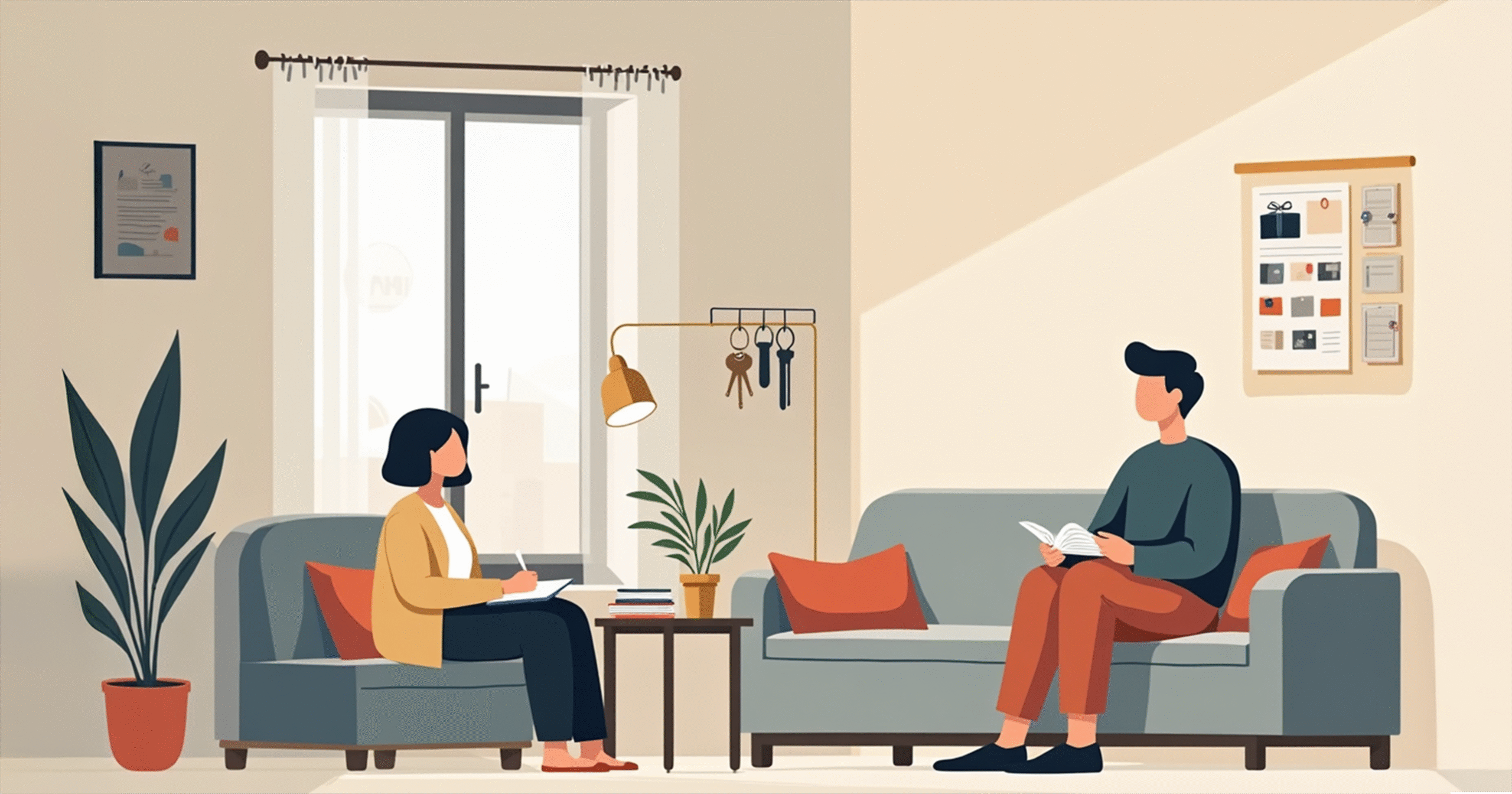


“My brain isn’t broken; it’s rewired. Quiet is where I can hear it.”
I used to fill the silence so no one thought I was lost. Now I choose it. After the strokes, everything shifted: how I think, how I remember, how I move. It’s cool and weird at the same time. The social circle shrank hard—down to about five who actually show up. Judgment from the outside used to sting. Now it’s background noise. I want a quieter life and a home where the people I love—yes, my poly girlfriends—can actually live with me by choice, not by accident.
Micro-CTA: If any part of this resonates, leave one line in the comments about what you’ve simplified this year.
I run fewer mental browser tabs. That means I say no faster, schedule less, and keep conversations short when my brain bandwidth dips. The upside: deeper focus on the one thing in front of me.
Gotcha: People who liked the old speed will call this “distance.” It’s not. It’s design.
Next step: Pick one decision today you’ll make slower—and one you’ll never make on the fly again.
I remember differently. So I externalize: tiny checklists, alarms, and written summaries after calls. The memory is still mine; it just lives in tools I trust.
Gotcha: When you don’t write it down, you pay twice—once in stress, again in cleanup.
Next step: Choose one “memory container” (notes app, paper card, whatever) and use only that for a week.
I move differently. I plan transitions (sitting ↔ standing, room ↔ room) and put more buffers between tasks. The result: fewer crashes, more stability.
Gotcha: The world won’t give you margins; you have to draw them.
Next step: Add a five-minute buffer on both sides of your most draining task.
When crisis stretched long, the “We should hang soon” crowd evaporated. What stayed: five people I’d call at 2 a.m. That’s not loneliness. That’s clarity.
Gotcha: Nostalgia will try to reopen old group chats. Let the season end.
Next step: Text one of your five today with something specific you appreciate.
I don’t explain my pace. I don’t apologize for needing quiet. I say, “I’m off-grid after 8,” and then I’m off-grid after 8. That’s not rude; that’s honest.
Next step: Write your three non-negotiables on a card. Share them with the people who actually ask to see you.
I want a small, intentional household—people who choose the same table, the same chores, the same late-night tea. Not a revolving door. A covenant of care.
Gotcha: “More partners” doesn’t fix “less alignment.” House rules beat vibes.
Next step: Draft a one-page “House Charter”: shared meals, quiet hours, chore cadence, conflict rules, and exit plan.
Love scales with honesty, not volume. We use shared calendars, check-ins, and explicit “capacity calls” (green/yellow/red). It keeps affection from turning into friction.
Next step: Add a weekly 20-minute household check-in with one question: “What would make next week lighter?”
I used to feel watched. Now I feel witnessed—because I only keep the witnesses who care. Poly isn’t an argument; it’s an agreement. If you’re not in the agreement, you’re not in the room.
Next step: Write one sentence that defines your relationship philosophy. Share it with the people it concerns, and nobody else.
The quieter I make the day, the more the new wiring works. I read slower, exercise gentler, and ship smaller. I ship more, not less.
Gotcha: Busy looks impressive; consistent wins.
Next step: Pick one daily ritual that makes you 1% steadier—keep it for 30 days.
Isn’t this just “shrinking your life”?
It’s shrinking the noise so the signal is audible. The signal is life.
How do you deal with people who don’t get it?
I don’t convert them. I curate my inputs and keep walking.
What if I want community but not cohabitation?
Then design rhythms: weekly dinners, shared projects, standing walks. Home is a rhythm before it’s an address.
How do you balance care with independence?
By asking for help before the cliff and offering help before the hint.
My mind is changed, and so is my map. Fewer people. Truer people. Quieter days. More honest love. If you’re building a smaller, kinder life after chaos—good. Keep going. You’re not behind; you’re precise.
Primary CTA: Tell me one boundary or rhythm that made your life 10% better. I’ll test it for a week and report back.
— randomblink (Rev. Brian Scott O’keefe)
“I rebuild in public because it keeps me honest.”